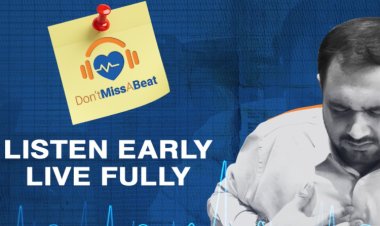The loss of the ability to use and/or comprehend language is devastating, but it is at least manageable

Aphasia and everyday life
Hollywood actor Bruce Willis has a medical problem that is impairing his cognitive functions.
Here's what experts say about living with the condition:
Aphasia is a cognitive impairment that affects a person's ability to comprehend language and express oneself verbally and/or in writing. "This is caused by diseases that affect the centres in the brain (or their connections) that deal with language function in the dominant hemisphere (usually the left side of the brain in the majority of people)," explains Dr. Anandh Balasubramaniam, Senior Neurosurgeon at Yashoda Hospitals. "The frontal and temporal lobes of the brain are involved in language." "The frontal lobe is in charge of speaking and writing skills, while the temporal lobe is in charge of understanding spoken words and certain aspects of reading skills," explains Dr Sudhir Kumar, MD DM, Senior Consultant Neurologist, Apollo Hospitals.
Causes of aphasia
" "There are four types of aphasia: motor aphasia (difficulty speaking), sensory aphasia (difficulty understanding spoken words), and global aphasia (difficulty speaking and understanding)," explains Dr Sudhir. A multitude of disorders can produce aphasia. "The most common cause is a stroke, which causes damage to the frontal and temporal lobes due to a lack of blood flow (ischemic stroke) or bleeding in the brain (brain haemorrhage)." Other causes include head injuries, brain infections, brain tumours, and so on. Aphasia can occasionally be caused by a degenerative process in the brain, in which nerves die prematurely. Primary progressive aphasia occurs when the degenerative process impacts nerves in areas related to language in isolation. If aphasia occurs as part of dementia (decline in multiple cognitive brain functions), it could be a sign of Alzheimer’s Disease," says Dr Sudhir.
Types of aphasia
There are four main types:
* Expressive or Motor aphasia – one knows what to say but can't find the right words to say.
* Receptive aphasia – one can hear / see words but cannot comprehend or make sense of the words heard or seen
* Anomic aphasia – where using names of people, objects, places or events is a problem
* Global aphasia – one is unable to use spoken language, understand speech, read or write
"The nerve centres may be disrupted by a loss of blood flow to the location, which can occur suddenly or gradually. When it comes suddenly, as in a stroke (brain attack), it is dramatic because the person loses the ability to speak or comprehend, or both. This may be associated with a loss of muscle power on one side of the face, as well as an arm or leg, usually on the dominant side. With prompt medical attention, blood supply to the affected area is frequently restored within the 'Golden Hours.' The clot can be dissolved with medicine or forcefully removed using vascular intervention methods. Immediate urgent medical attention at a Stroke Unit is key for recovery," he adds.
Treating aphasia
The treatment of aphasia is determined by the underlying cause of the disease, which could be a stroke, a brain infection, or dementia. Aphasia patients benefit greatly from speech treatment. "In people with blood vessel diseases like diabetes, the areas governing speech may be affected over time, making speech more difficult as the disease progresses. The problem may be difficult to reverse in such cases, but progression can be arrested if the underlying pathology is quickly identified and adequately treated," explains Dr Anandh.
" In all cases of aphasia, good speech therapy and neuro rehab care are required to regain complete or even partial functionality. The ability to fully recover is influenced by age, with youngsters having a better chance than adults. Timely diagnosis, early intervention, and appropriate medical management, combined with good post-treatment therapy, can go a long way in limiting damage and improving the chances of recovery in those suffering from aphasia," says Dr. Anandh.
HIGHLIGHT
Aphasia can impair speech, reading, writing, and listening abilities. The condition frequently manifests itself abruptly after a stroke or other brain injury destroys regions of the brain involved in language function.

 Disclaimer: Welthi.com does not guarantee any specific results as a result of the procedures mentioned here, and the results may vary from person to person.
Disclaimer: Welthi.com does not guarantee any specific results as a result of the procedures mentioned here, and the results may vary from person to person.









